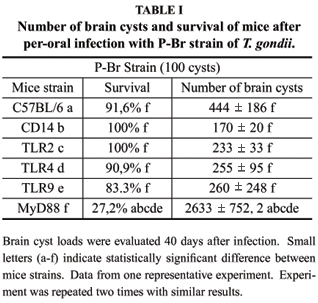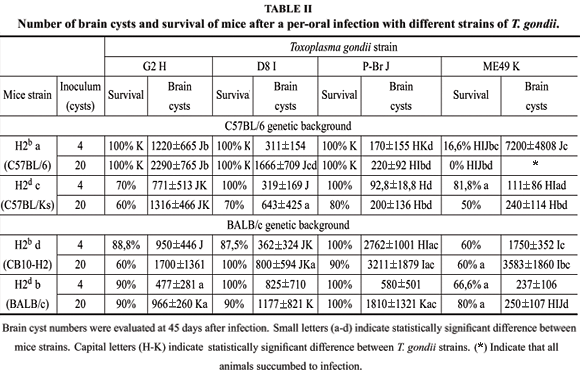Toxoplasma gondii strains displaying the Type I/III genotype are associated with acquired ocular toxoplasmosis in humans. Here, we used a mice model to characterize some immunological mechanisms involved in host resistance to infection with such strains. We have chosen the Type I/III strains D8, G2 and P-Br, which cause a chronic infection in mice that resembles human toxoplamosis. Mice deficient of molecules MyD88, IFN-gamma, and IL-12 were susceptible to all three parasite strains. This finding indicates the importance of innate mechanisms in controlling infection. On the other hand, MHC haplotype did not influenced resistance/susceptibility; since mice lineages displaying a same genetic background but different MHC haplotypes (H2b or H2d) developed similar mortality and cyst numbers after infection with those strains. In contrast, the C57BL/6 genetic background, and not MHC haplotype, was critical for development of intestinal inflammation caused by any of the studied strains. Finally, regarding effector mechanisms, weobserved that B and CD8+ T lymphocytes controlled survival,whereas the inducible nitric oxide synthase influenced cyst numbers in brains of mice infected with Type I/III strains. These findings are relevant to further understanding of the immunologic mechanisms involved in host protection and pathogenesis during infection with T. gondii.
Toxoplasma gondii strains; innate immunity; acquired immunity; TLR and MHC








